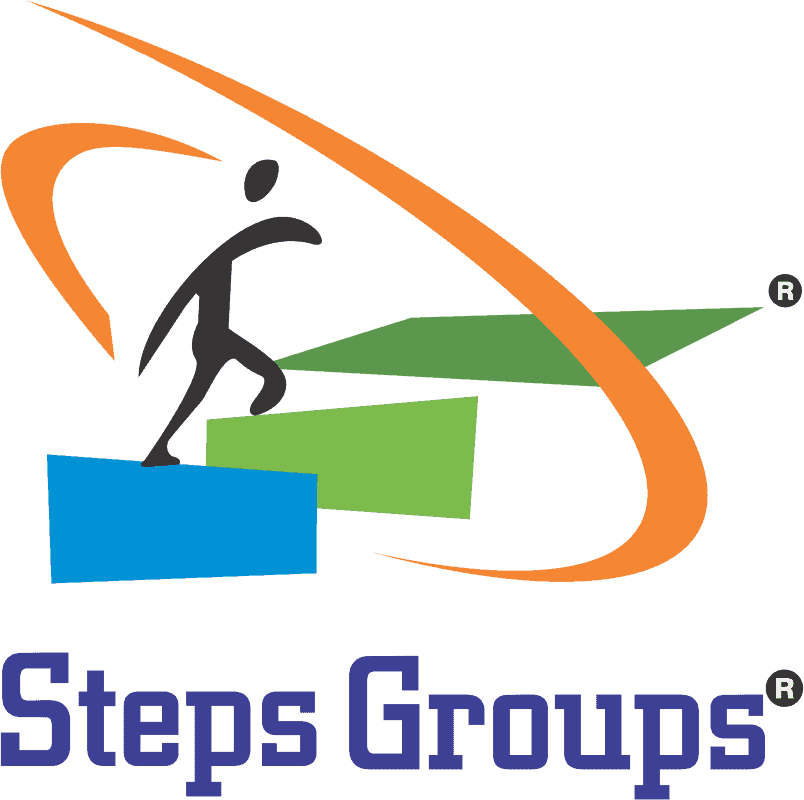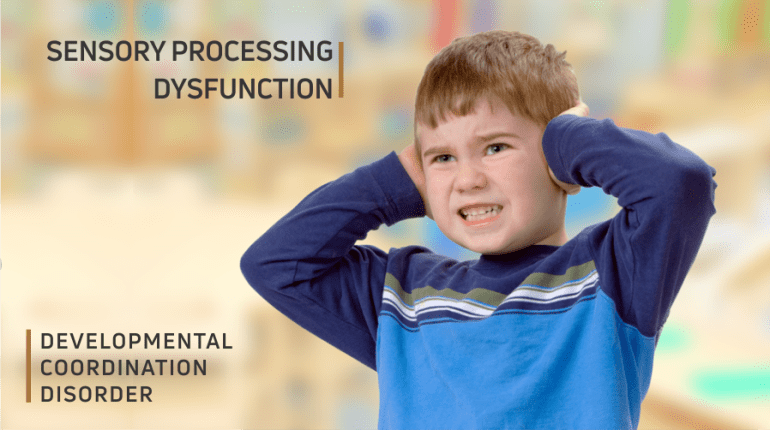Dyspraxia & Sensory Processing Disorder
Dyspraxia & Sensory Processing Disorder Treatment in Coimbatore
At Steps Groups, we provide specialized therapy for Dyspraxia (Developmental Coordination Disorder) and Sensory Processing Disorder (SPD) in Coimbatore, helping children improve coordination, motor planning, and sensory regulation. Our experienced paediatric occupational therapists use evidence-based techniques to help children develop confidence, independence, and better participation in daily life.
Understanding Dyspraxia / Developmental Coordination Disorder (DCD)
Dyspraxia, also known as Developmental Coordination Disorder (DCD), is a motor coordination disorder that affects a child’s ability to plan, organize, and perform physical movements smoothly.
Children with Dyspraxia may appear clumsy or uncoordinated, often struggling with activities such as writing, dressing, playing sports, or using utensils. The condition is not related to intelligence but rather how the brain processes and transmits motor information.
Diagnosis and Symptoms
Diagnosis is typically made by a paediatrician or specialist based on a detailed occupational therapy motor assessment.
Common signs of Dyspraxia / DCD include:
- Poor balance and coordination
- Difficulty with dressing, tying shoelaces, or using buttons
- Trouble catching, throwing, or kicking a ball
- Clumsiness or frequent tripping and falling
- Struggles with handwriting or organizing tasks
- Difficulty following multi-step physical activities
Children with Dyspraxia often experience frustration and reduced self-confidence due to their challenges with everyday activities — which is why early intervention is key.
Occupational Therapy for Dyspraxia
At Steps Groups, our occupational therapy for Dyspraxia focuses on improving motor planning, balance, coordination, and functional independence.
Our therapy sessions include:
- Fine Motor Skill Training: Activities that strengthen hand muscles and improve grip and writing control.
- Gross Motor Skill Exercises: Balance and movement activities to improve stability and body awareness.
- Hand-Eye Coordination Activities: Engaging games that enhance visual-motor integration.
- Motor Planning Strategies: Teaching step-by-step problem-solving for complex movements.
- Sensory Integration Therapy: Helping the brain process and respond appropriately to sensory input.
Therapy is designed to be fun, engaging, and success-oriented to keep children motivated and confident.
Understanding Sensory Processing Disorder (SPD)
Sensory Processing Disorder (SPD) occurs when the brain has difficulty receiving and responding to sensory information from the environment.
While most children naturally process sensory input — like sounds, textures, or movement — children with SPD may overreact or underreact to these sensations, making everyday experiences challenging.
The Seven Senses We Process
Most people are familiar with the five main senses — sight, sound, smell, taste, and touch — but two additional senses play a crucial role in development:
- Proprioception: Awareness of body position through signals from muscles and joints.
- Vestibular System: Sense of balance and movement, controlled by the inner ear.
When these systems are not functioning optimally, children may struggle with coordination, focus, and behavior regulation.
Signs and Symptoms of Sensory Processing Difficulties
Children with sensory processing challenges may display the following behaviors:
Tactile (Touch) Difficulties
- Dislikes certain clothing textures or tags
- Avoids sticky or messy play
- Struggles with grooming tasks like hair washing or tooth brushing
- Extremely picky about food textures
Proprioceptive (Body Awareness) Difficulties
- Constantly moving or fidgeting to seek deep pressure
- Prefers tight hugs, heavy clothing, or weighted blankets
- Appears clumsy or unaware of personal space
Vestibular (Movement) Difficulties
- Avoids playground activities like swinging or sliding
- Fear of heights or spinning
- Or, alternatively, craves movement excessively (spinning, jumping, running nonstop)
Auditory (Hearing) Difficulties
- Overreacts to loud noises (crowds, school bells, traffic)
- Appears not to respond when name is called
- Trouble focusing in noisy environments
Occupational Therapy for Sensory Processing Disorder
Our occupational therapists in Coimbatore specialize in sensory integration therapy to help children better understand and manage sensory information.
Therapy Approach:
- Comprehensive Sensory Assessment: Identifying which sensory systems are under or over-responsive.
- Individualized Sensory Diet: Custom strategies and activities designed to provide the right balance of sensory input throughout the day.
- Play-Based Sensory Activities: Engaging games that challenge and strengthen sensory systems — like swinging, jumping, or textured play.
- Home and School Integration: We guide parents and teachers to reinforce sensory strategies at home and in classrooms for consistent improvement.
Our goal is to help children respond appropriately to their environment, regulate emotions, and participate comfortably in learning and social activities.
Why Choose Steps Groups for Dyspraxia & Sensory Therapy in Coimbatore?
- Expert paediatric occupational therapists with advanced training in Dyspraxia and Sensory Integration
- Personalized, evidence-based therapy plans
- Holistic approach addressing motor, sensory, and emotional development
- Parent and teacher guidance for ongoing support
- Safe, child-friendly, and sensory-rich therapy environment
Helping Children Move, Feel, and Grow with Confidence
At Steps Groups, we believe that every child deserves to experience success, independence, and joy in daily life.
Through structured occupational therapy, we help children with Dyspraxia and Sensory Processing Disorder enhance coordination, self-regulation, and participation at home, school, and play.
📞 Contact Steps Groups today to schedule an assessment or learn more about our Dyspraxia and Sensory Processing Disorder treatment in Coimbatore.



